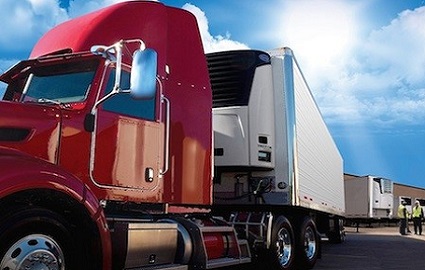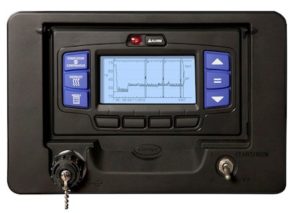
Leased Reefers and FSMA–What’s the Link?
The rules of the road changed when it comes to food transport, thanks to the U.S. Food and Drug Administration’s (FDA) Food Safety Modernization Act, commonly known as FSMA (fiz-mah).
FSMA was created to help protect food from contamination as it travels from farm to table. The Sanitary Transportation of Human and Animal Food rule was added in 2016, aimed specifically at the hauling and delivery links of the food chain.
The rule, which took effect for most fleets in April 2017, is of special interest to refrigerated haulers, who transport most of the nation’s meat, produce, dairy, frozen, and other food items. While the rule provides some guidance on equipment cleanliness and temperature record-keeping, its primary aim is to establish accountability via written procedures and training.
Leased reefers and FSMA
So what might leasing have to do with FSMA?
Some facets of the rule point to advantages you can get by using newer refrigerated trailers, and leasing is a great way to add youth to your fleet without a major capital investment.
Here are some examples of ways leasing can help with FSMA compliance:
- Cleanliness—FSMA requires equipment that carries food to be adequately cleanable and maintained in a sanitary condition. As a leased refrigerated trailer will likely be newer than an owned trailer in service for many years, it will be free from the kind of damage that may make surfaces difficult to clean.
- Reliability—FSMA says that if a shipper, carrier or receiver becomes aware of a possible failure of temperature control or other condition that renders food unsafe, the food can’t be sold unless a qualified individual attests that the food is safe. Using newer leased reefers helps alleviate concerns about age-related equipment failures, which could lead to delays or losses of cargo.
- Data Management—FSMA does not specifically require proof of temperature with each delivery, leaving it up to the shipper and receiver to establish, document and adhere to those procedures with the carrier. However, FSMA requires records to be made available if there’s a question about a delivery. Modern refrigeration units continuously record temperatures inside the trailer while the refrigeration unit runs. This information is stored in the controller and usually can be viewed on the display. Temperature data also can be downloaded as needed.
- Efficient Operation—While efficiency is not a FSMA mandate, a late-model leased reefer will have the benefits of optimal insulation and better system efficiency that will help you save fuel, both on the road and during trailer precooling—a best practice that usually will be specified by shippers. Trailers can lose 3% to 5% of their insulation value each year, so using a newer model leased trailer assures optimal thermal characteristics. Couple a better-insulated reefer with today’s more efficient, higher-capacity refrigeration units, and you should be able to achieve precooling setpoints quicker with less fuel consumption.

In short, leased reefers rule when it comes to following FSMA’s transportation rule.
Learn more:
- FDA Transport Rule online summary
- What’s so great about a new refrigerated trailer?
- 4 hot tips to manage cool loads
- 6 simple steps to load refrigerated cargo properly